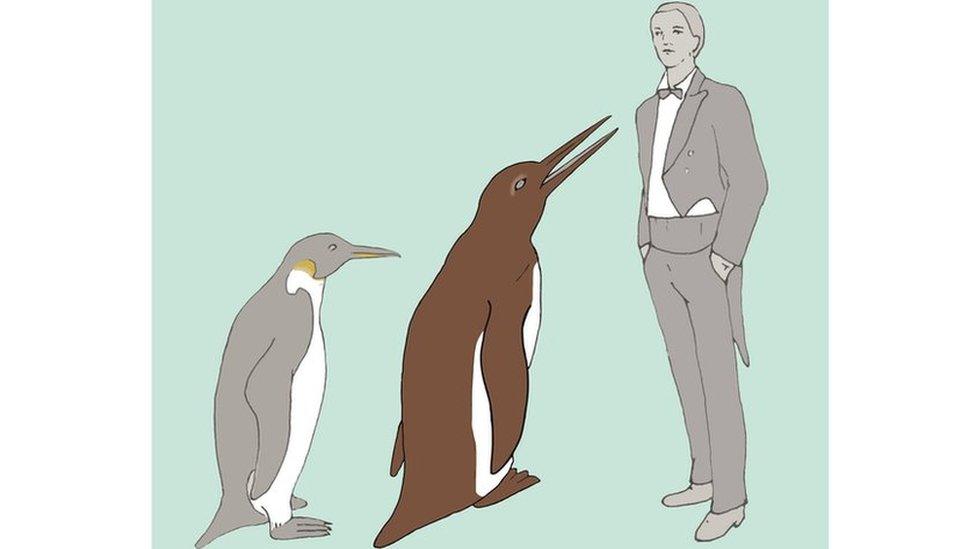Millions more Adélie penguins than scientists thought
- Published
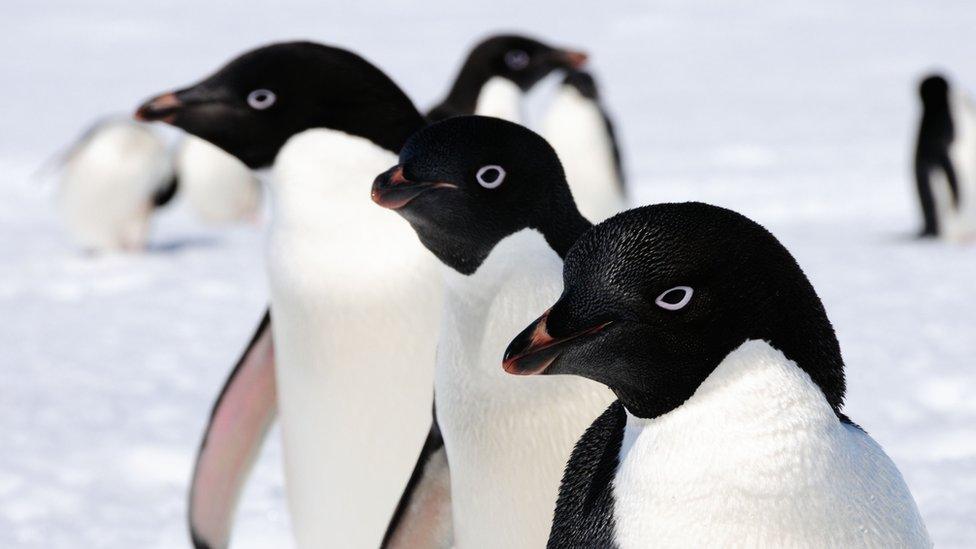
It turns out that there's a lot more Adélie penguins in East Antarctica than scientists originally thought.
Scientists from Australia, France and Japan checked out a 5,000km stretch of coastline in East Antarctica.
It was thought there were about 2.3 million penguins in the area but now after counting again scientists say it is 5.9 million.
Using this new figure they estimate there are between 14 and 16 million of these birds around the world!
Scientists say the reason they got it wrong the first time was because they didn't look at non-breeding penguins that were out getting food.
Australian Antarctic Division seabird ecologist, Dr Louise Emmerson said "Non-breeding birds are harder to count because they are out foraging at sea, rather than nesting in colonies on land."
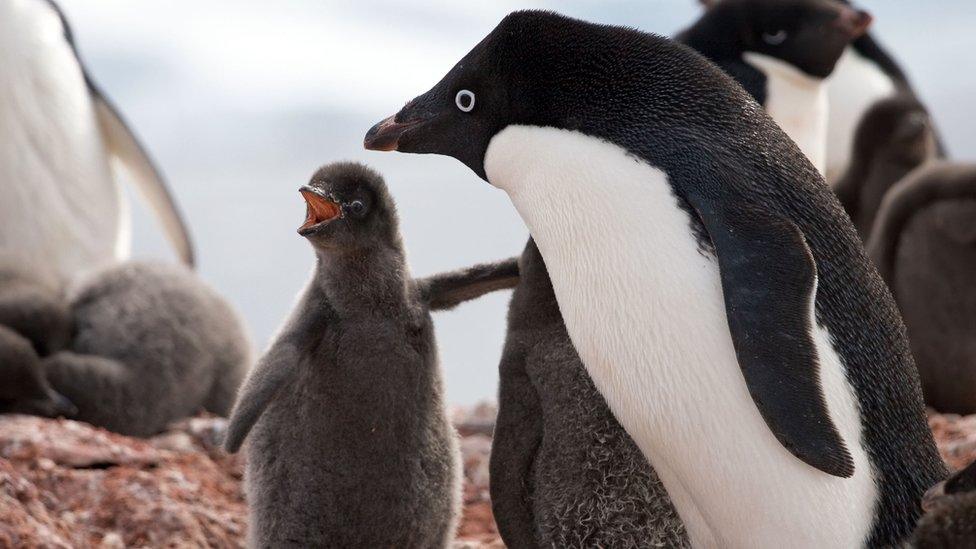
Like lots of penguins, Adélie travel huge distances to find food for their young
The birds are hard to count because they travel a long way and spend a lot of time catching food.
And they need a lot of food for their chicks.
An estimated 193 500 tonnes of krill and 18 800 tonnes of fish are eaten during the breeding season by Adélie penguins breeding in East Antarctica." Dr Emmerson said.
It's hoped that this new research will help people support the penguins and understand their hunting needs better.

Adélie penguin facts:
•The scientific name for an Adélie penguin is Pygoscelis Adélie - try saying that one!
•The Adélie penguin was discovered way back in 1840 by a French scientist, who named the penguin after his wife - Adele.
•You can spot the difference between Adélie penguins and other species of penguin by seeing if they have a white ring around their eyes. If they do then you know its an Adélie penguin.
•The average height of an Adélie penguin is 70cm
•Adélie penguins generally weigh 3-6kg which is twice the size of a human baby
- Published1 December 2016
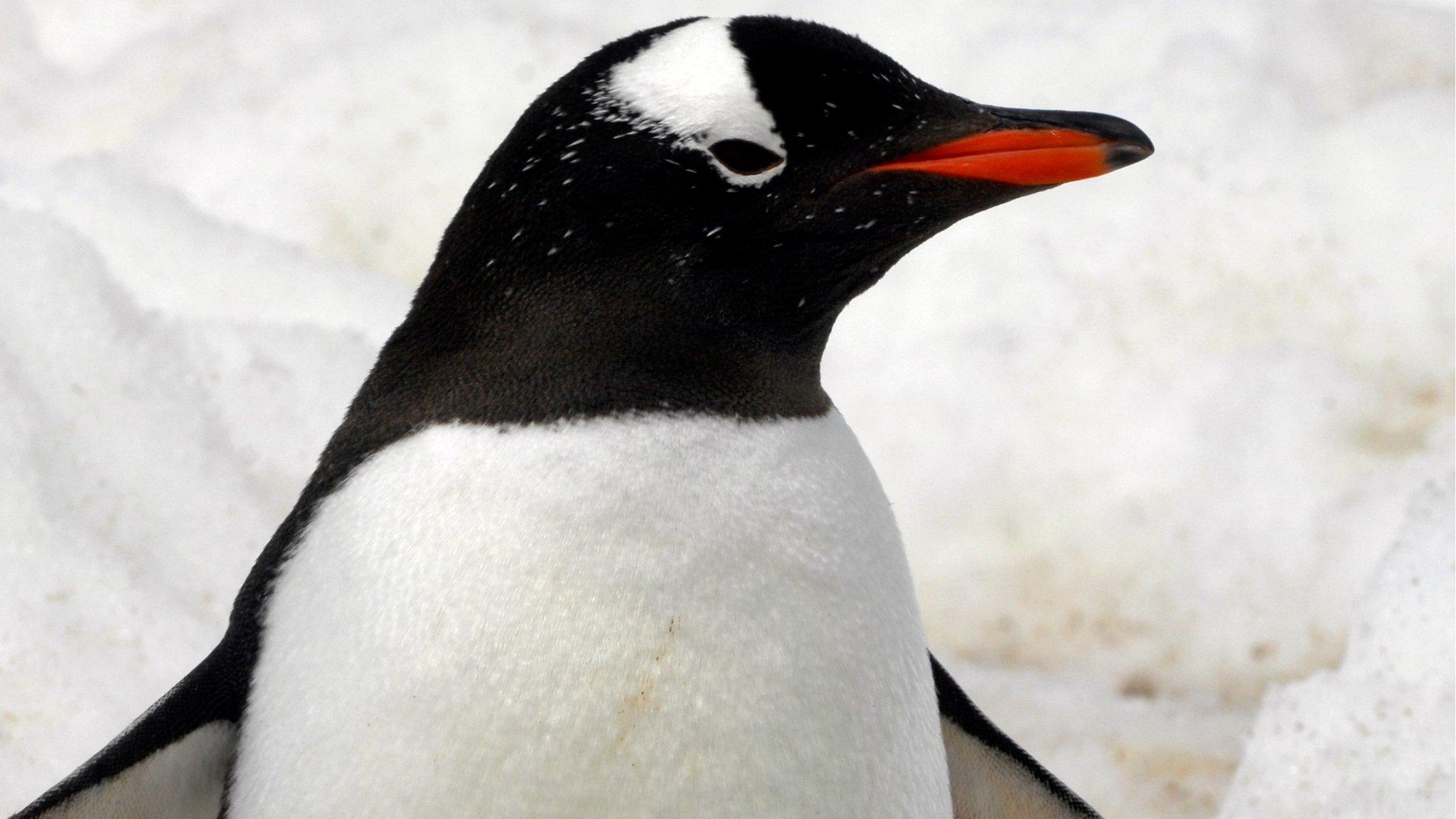
- Published22 November 2016
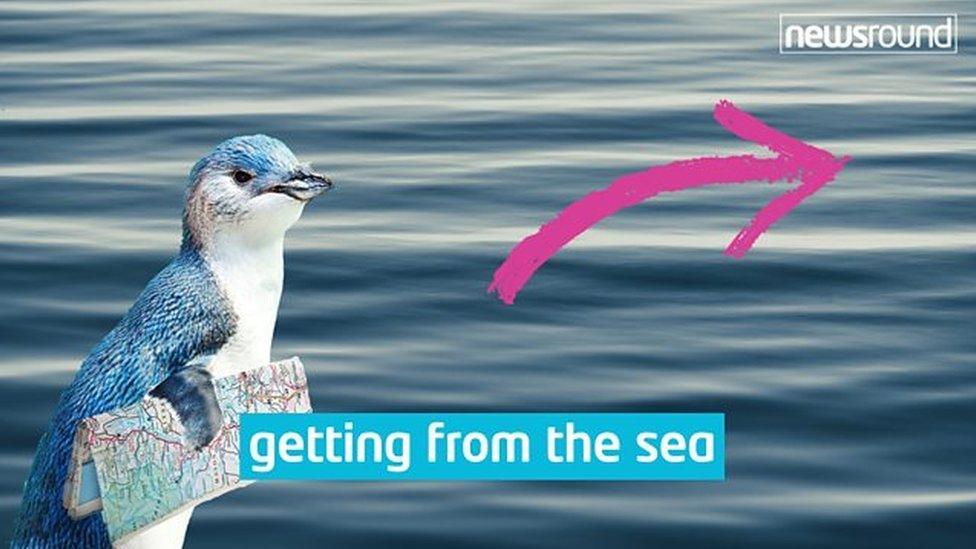
- Published23 February 2017
